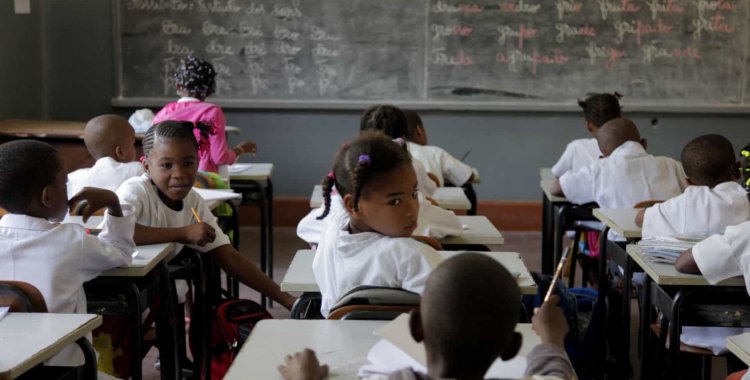"We are making a thorough assessment of the current measures and we may probably have to take others to control this chain of transmission," said Silvia Lutucuta during a press conference in Luanda ", showing concern about the high" default "of the citizens.
Angola this Sunday announced its 353rd case of infection, having registered a rapid increase in the number of infected in the last four weeks.
Restaurant hours, but also the practice of physical exercise outdoors may have more restrictions, he admitted, indicating that "legal measures" will be taken next week to demote certain practices, without specifying which ones.
As for the education sector that “is doing its homework”, it may also come down with respect to the resumption of teaching activities.
"As we said, we are going to back off on some things and this is probably one of them," said Silvia Lutucuta, stressing that the objective is to cut the transmission chain and continue to protect Angolans.
Classes in general and university education were suspended in March, before President João Lourenço declared a state of emergency, which took place between 27 March and 25 May, and the situation of public calamity followed on 26 May.
The decree that determines public calamity foresees the resumption of activity in higher education and in the second cycle of secondary education from 13 July, although "dependent on the evolution of the epidemiological situation".
The Minister of Health also did not exclude the possibility of building a sanitary fence in the province of Cuanza Norte, which is alongside Luanda, the epicenter of the epidemic, the only province with cases of covid-19.
Silvia Lutucuta also assumed that the Government is “concerned with the high mortality” that is registered in the country (19 deaths), but guaranteed that “all the technical capacity” is gathered and “what is established in international protocols” is being fulfilled ” .
He added, on the other hand, that many patients have associated comorbidities and arrive at hospitals already with respiratory stops, in critical condition or even dead.
But “we have critically ill patients who were ventilated and recovered”, he added.
Silvia Lutucuta also indicated that the government has created good conditions for internment and that the capacity is not exceeded.
"The field hospital in the Special Economic Zone is not full, has a capacity of 500 beds and we have a total of 353 cases," he exemplified, adding that there are more places of hospitalization.
The minister also pointed out that the testing capacity has increased, so that there will be “greater turnover in institutional quarantines”, to which travelers and suspected cases are subjected.







